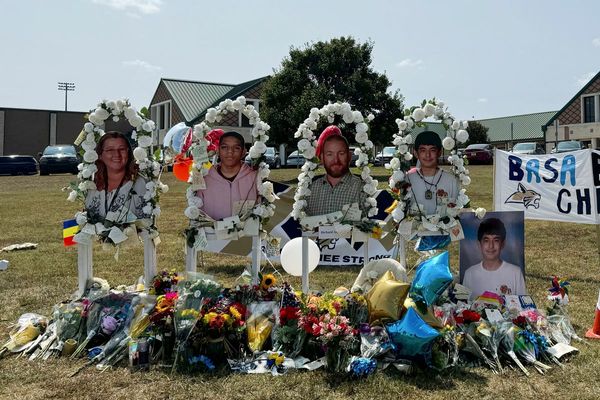
Heavy rain, hail, lightning - it wouldn’t have been a shock to see snow falling by the end of Sunday’s Okayama race, such was the rapid pace at which the conditions changed at the track situated in Japan’s self-titled ‘Land of Sunshine’.
That was a moniker that seemed apt during the official pre-season test at the former Pacific Grand Prix venue in March, which took place in balmy spring temperatures; less so when the rain started lashing down on Saturday morning for the start of free practice.
The two red flags in that session set the tone for what was to come. But while those stoppages were entirely understandable, some of the subsequent calls taken by race control were less so, serving to take some of the sheen away from what was an otherwise dramatic and entertaining race.
Even in qualifying, there was some controversy. Given the poor conditions, each 10-minute segment was expanded to 15 minutes to allow drivers more time to warm up their tyres. But with a little over five minutes left of the first segment of Q1 for the GT300 class, the red flags were shown as the rain got heavier still, and the session was not resumed.
One of the teams that found itself on the wrong side of the cut line was furious with the decision, saying that they had been focused only on warming up their tyres when the red flags came out.
While there is an argument that the remaining five-and-a-bit minutes on the clock would have been insufficient to get the tyres back up to temperature, equally you can understand the team in question’s frustration when the session had been extended in the first place for that exact purpose.

Come Sunday, hopes of a dry race were scuppered barely 10 laps in, although the first of three red flags didn’t make an appearance until lap 54.
The field was already behind the safety car at this point following an incident involving the #9 Pacific Mercedes and the #88 JLOC Lamborghini. But when the race was suspended, the cause was not immediately clear. The rain was certainly not heavy enough at this stage to warrant it, leaving the drivers baffled.
After around 10 minutes, during which time even local circuit commentator Pierre Kitagawa seemed stumped, it emerged that lightning in the area had prompted the stoppage. The race would resume after a delay of 20 minutes, but the irony was that in the interim, the rain had become much worse, so much so that no more green flag running would take place.
Instead, all we got was a dash for the pits as teams scrambled to get back on to wet tyres, which ended up determining the finishing order. Amid the drama of the #36 TOM’S Toyota crew botching its pitstop, it was easy to miss that, in the GT300 class, the #244 Max Racing Toyota made a huge jump from 11th to third.
This was simply by virtue of having the pit box closest to the pit entry, allowing the team to complete its stop smoothly while its rivals all tripped over each other further down the pitlane. The biggest loser was the Team Studie BMW, which slipped from third to sixth amid the mayhem. As veteran Joao Paulo de Oliveira put it, the race had descended into a lottery.
Despite the by-now appalling conditions, which were much worse than when the race had been first red-flagged around 40 minutes earlier, the safety car lights had gone out and a restart was on the cards until it was called off when the #2 Inging Toyota GR86 shed its left-rear wheel.
The red flags came out again on lap 60, and then, with the three-hour time limit rapidly approaching, the race was resumed once more. But this time, only two more laps were completed behind the safety car, with no changes in position, before the third red flag that finally brought an end to one of the most bizarre races in recent memory.

Perhaps the most unedifying thing of all, though, was the confusion that reigned over whether full or half-points were to be awarded after the race was cut short.
At the time the race was finally called off, the leaders had completed 62 laps of a scheduled 82, representing the minimum cut-off of 75% for full points. However, when the official results were released hours later, the results were rolled back to 61 laps, prompting confusion over how many points would be awarded.
The series itself was silent on the matter, besides updating its official website with the usual full points. But the explanation provided by SUPER GT when contacted by Motorsport.com was simple enough.
Because the lap count required to cover a certain distance (300km in this case) has to be rounded up to the nearest lap, the race would have covered 303.6km had it gone the full 82 laps. In the eyes of the organisers, to reach the 75% threshold it was only required to cover 225km, which equates to 61 laps and not 62 as had been widely assumed.
What’s more, the 61-lap requirement for full points to be given had apparently been communicated to the teams in advance. If that was the case, it should have been made clear to the watching public as well to prevent the confusion.
In all these instances, it was not so much the decisions themselves that left a sour taste in the mouth as the lack of explanation surrounding them, continuing the series’ frustrating habit of being opaque when tough calls have to made and detracting from an otherwise excellent show.
While getting every decision right is too much to ask, a little more transparency would go a long way to keeping fans and competitors alike on side in future.
Join Motorsport.tv to watch the full SUPER GT Okayama race on replay here.








